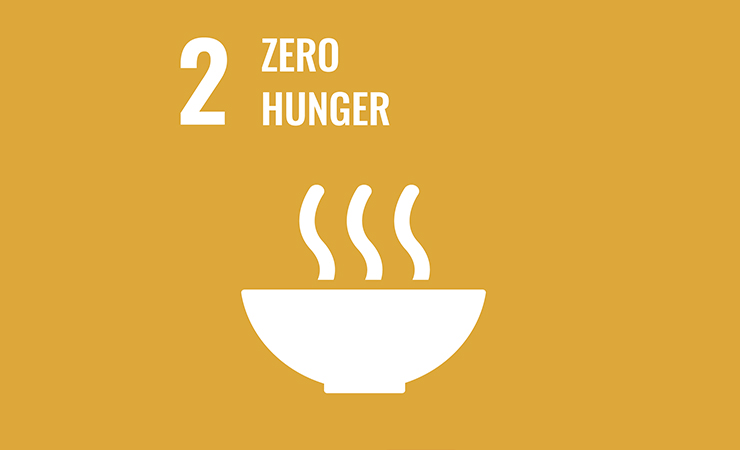- Beranda
- Profil
- Pendidikan
- Riset & Pengmas
- Unit Kerjasama
- Fasilitas & Umum
- Akses Cepat
2.2.1 Campus food waste tracking
Measure the amount of food waste generated from food served within the university.
–
2.2.2 Campus food waste
In 2022, the population of FTUI will be 2346 and produce campus food waste of 8325.
2.3.1 Student food insecurity and hunger
Have a programme in place on student food insecurity.
–
2.3.2 Students and staff hunger interventions
Provide interventions to target hunger among students and staff (e.g. including supply and access to food banks/pantries).
FTUI collaborates to rent space with outside parties to provide food and drinks in the FTUI Student Canteen for the 2022-2023 period.
Evidence link:
Hygienic Test Results in FTUI Student Canteen
2.3.3 Sustainable food choices on campus
Provide sustainable food choices for all on campus, including vegetarian and vegan food.
FTUI carried out menu selection for the 2022 FTUI Student Canteen by choosing a hygienic menu by carrying out Quality and Bacteria Tests based on the Regulation of the Minister of Health of the Republic of Indonesia number 1096/MENKES/PER/VI/2011 concerning Jasaboga Sanitation Hygiene and UI Chancellor’s Regulation number 057 of 2017 concerning Implementation Safety, Occupational Health and Environmental (K3L) aspects in the University of Indonesia Canteen environment. Apart from that, the FTUI Student Canteen also provides vegetarian food.
Evidence link:
Selection of Prospective FTUI Canteen Tenants
2.3.4 Healthy and affordable food choices
Provide healthy and affordable food choices for all on campus.
As part of improving the services of the FT UI Dean Management to the FT UI academic community, especially students who use the technical canteen (kantek), the FT UI Dean Management has carried out several things related to the Kantek management system.
In terms of hygiene, since 2015, the food sold at Kantek has been free from salmonella, e coli bacteria, and borax preservatives. Testing of food sold at the FT UI office continues to be carried out randomly to control the quality of the food sold in collaboration with the Environmental Health Laboratory of FKM UI.
Then, in terms of hygiene, SinceAugust 2016, there was a spatial arrangement and cleanliness, transaction flow, dishwashing pattern, and a cashless payment system to reduce contamination and spread of bacteria through money.
FTUI conducts Hygienic Tests of FTUI Canteen Food and Beverage Menus at the FKM UI Environmental Health Laboratory for prospective FTUI Canteen tenants.
Evidence link:
2.4.1 Number of graduates: 1872
2.5.1 Access to food security knowledge
Provide access on food security and sustainable agriculture and aquaculture knowledge, skills or technology to local farmers and food producers.
Dean of FTUI Prof. Heri Hermansyah, S.T., M.Eng., IPU, is a Smart City UI Advisor who in 2022 will collaborate with the University of Notre Dame and the United States Agency for International Development (USAID) to conduct research on the role of universities in creating an agricultural innovation ecosystem dynamic in West Java. This collaborative research is part of the Higher Education Institutions Generating Holistic and Transformative Solutions (HEIGHTS) project and the Supporting Holistic Actionable Research in Education (SHARE) subproject. This research aims to identify the innovation ecosystem in Indonesia and find the relationship between all actors involved in this ecosystem. In the future, the results of this research will be used to strengthen collaborative synergies, as well as stimulate the growth of an increasingly resilient innovative ecosystem in the West Java agricultural sector.
Evidence link:
2.5.2 Events for local farmers and food producers
Provide events for local farmers and food producers to connect and transfer knowledge
FT UI provides events for local farmers and food producers to connect and transfer knowledge.
In 2021, FT UI and UI Researchers held community service activities by implementing stingless beekeeping technology funded by Bank Indonesia. This activity aims to create the economic independence of Islamic boarding schools. Three selected Islamic boarding schools in Bengkulu, South Sulawesi and West Nusa Tenggara.
The Community Service Team (Pengmas) of the Bioprocess Engineering Study Program, Faculty of Engineering, University of Indonesia (FTUI) carried out avocado butter cultivation training for avocado farmers in Iwul Village in collaboration with the Center for Tropical Horticulture Studies, Bogor Agricultural Institute. The FTUI Community Service Team consists of Dr. Kenny Lischer, S.T., M.T.; Apriliana Cahya Khayrani, S.TP., M.Eng., Ph.D.; and Retno Wahyu Nurhayati, S.TP., M.Eng., Ph.D.Eng. held “Training for Trainers” and education related to avocado cultivation and close-range planting systems for butter avocado farmers in Sukamantri, Bogor, West Java. In this activity, participants are given free material and practice related to selecting seeds and varieties, preparing rootstock seeds, sowing rootstock seeds, and preparing scions for carrying out shoot grafting activities.
Evidence link:
FTUI Teaches the Top Grafting Method to Increase Avocado Butter Harvests in Limited Land
2.5.3 University access to local farmers and food producers
Provide access to university facilities (e.g. labs, technology, plant stocks) to local farmers and food producers to improve sustainable farming practices.
–
2.5.4 Sustainable food purchases
Prioritise purchase of products from local, sustainable sources.

